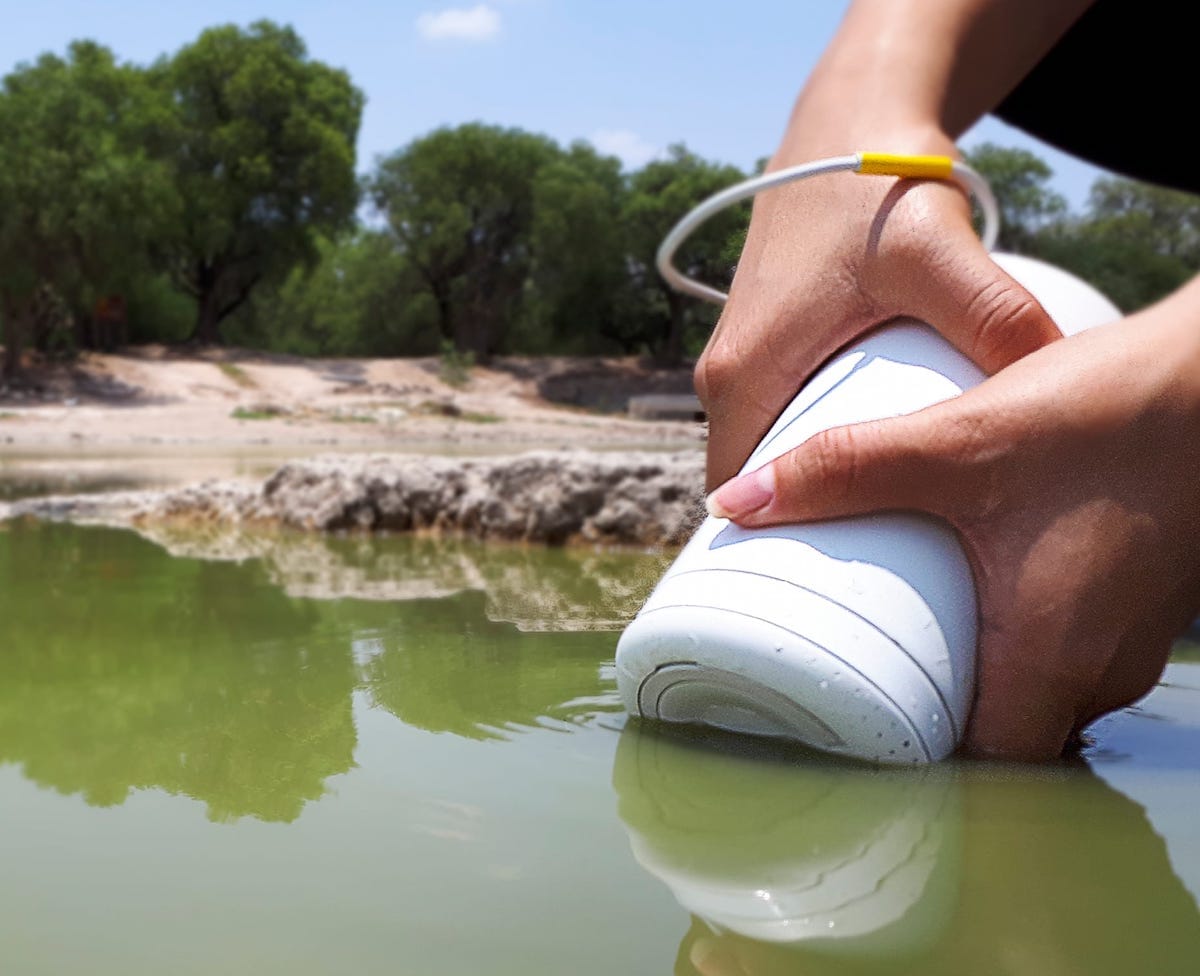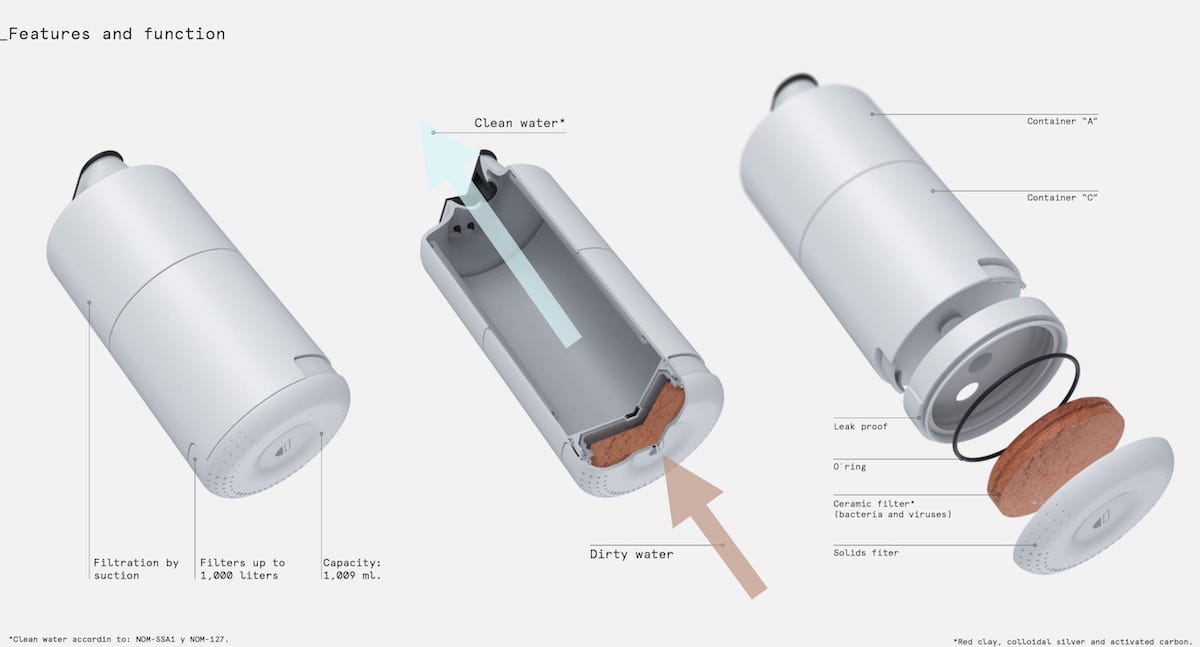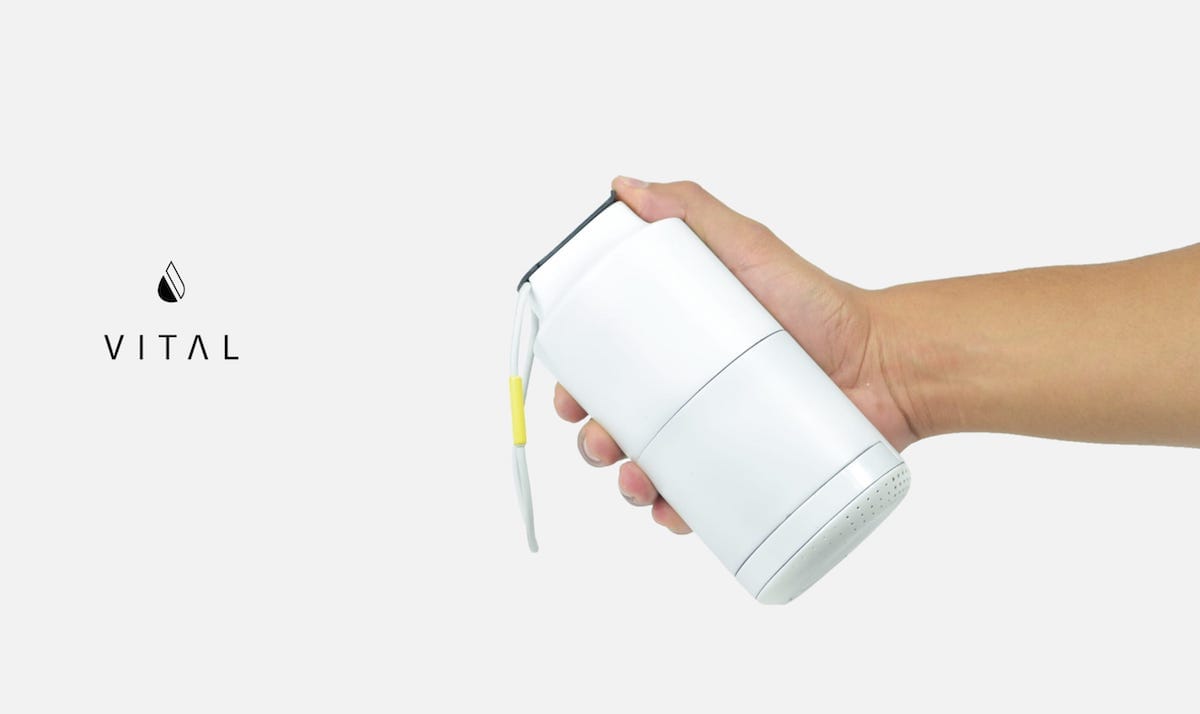
A ceramic filter can be the solution for people living in the most deprived areas of Mexico to have access to drinking water, free of impurities.
The design is by Indalecio Gaytan, professor of industrial design at the University of San Luis Potosí and winner of the 2020 James Dyson Award from Mexico, who developed a water filtration system that prevents contamination by bacteria and other impurities.
The invention, which was named Vital, filters, collects, stores and transports clean water suitable for consumption, with a storage capacity of 500 ml to one litre.

The technology used in the conception of the project is ceramic filtering, an ancient technique that makes Vital a complete and easy-to-maintain system, which allows people in the poorest regions to always have drinking water at hand.
The ceramic filter has a low production cost and is made from a mixture of terracotta, nopal (a very common cactus in Mexico), activated carbon and colloidal silver. Its operation is very simple: the device draws water from rivers and lakes through a tip that resembles a syringe, absorbing dirty water and eliminating up to 98% of impurities.
The filter was designed with the aim of finding a solution to the lack of access to drinking water in Mexico. La Rosita, a small community in San Luis Potosí, was the region chosen for the development of the project.
The main idea is to make this project possible and accessible to everyone, so the project will be open source, that is, free for anyone to use.
Indalecio Gaytan.

More information: www.jamesdysonaward.org